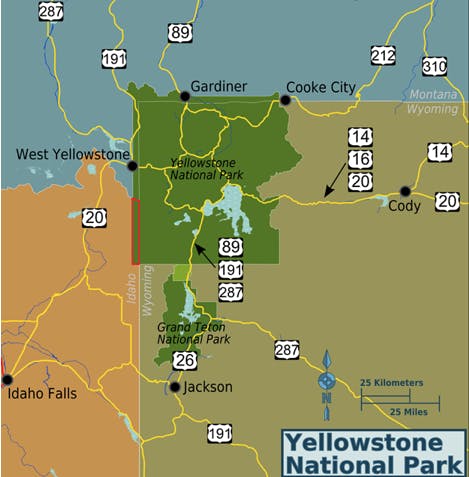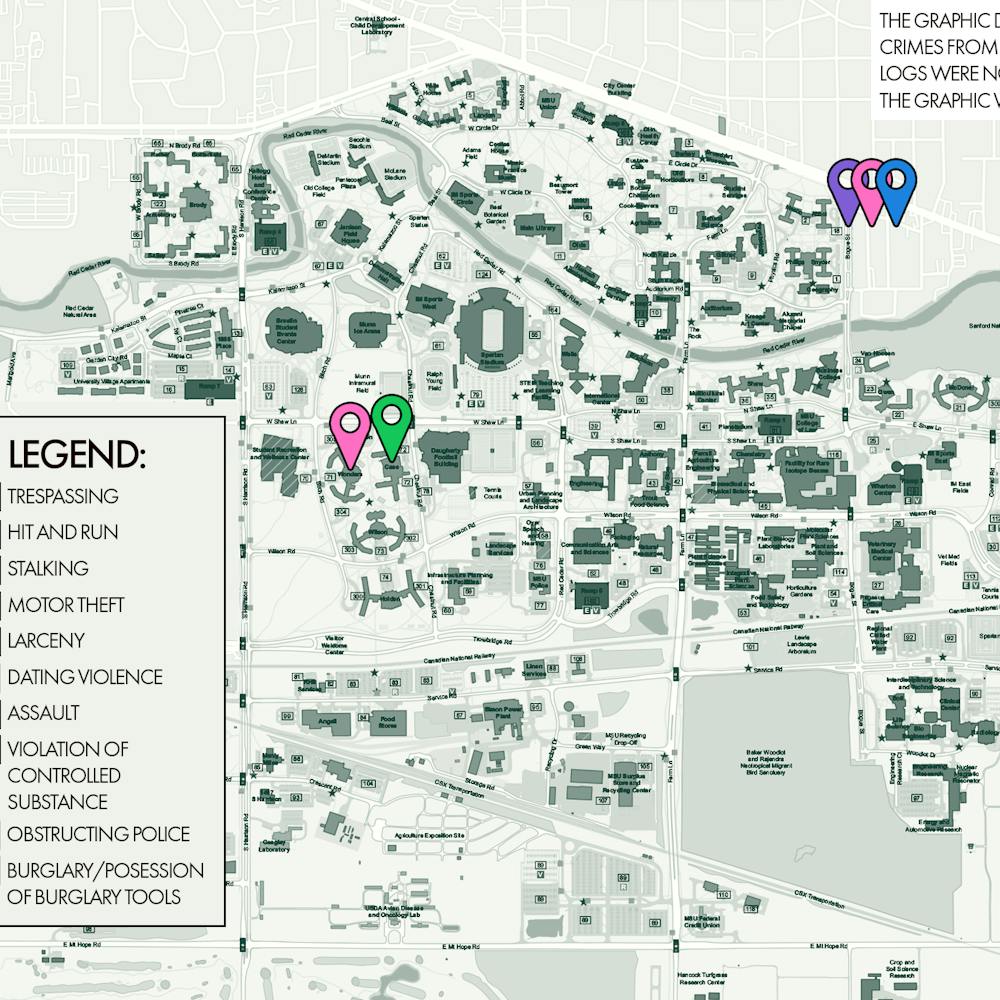A loophole discovered by MSU law professor Brian Kalt may be the key to getting away with the perfect crime. A 50 square mile section of the park contains a loophole, because of a conflict in the U.S. Constitution, Kalt said.
Published on Jan. 1, 2005, “The Perfect Crime” describes how the Idaho section of Yellowstone National Park could lead to a potential problem.
“Say that you are in the Idaho portion of Yellowstone, and you decide to spice up your vacation by going on a crime spree,” Kalt said in the “The Perfect Crime.” “You are arrested, arraigned in the park, and bound over for trial in Cheyenne, Wyoming before a jury drawn from the Cheyenne area.
“But Article III, Section 2 (of the U.S. Constitution) plainly requires that the trial be held in Idaho, the state in which the crime was committed ... the Sixth Amendment then requires that the jury be from the state (Idaho) and the district (Wyoming) in which the crime was committed. In other words, the jury would have to be drawn from the Idaho portion of Yellowstone National Park, which, according to the 2000 Census, has a population of precisely zero.”
This allows the criminal to walk, because according to the Sixth Amendment and Article III, Section 2 the trial has to take place in Idaho, and the jury drawn of the Yellowstone Idaho district, Kalt said.
Even after his discovery, local courts in the Yellowstone National Park area haven’t done much in trying to solve the problem, Kalt said.
“As a general matter, trial courts don’t like to get into the weeds (of the issue),” Kalt said. “They will err on the side of letting the trial go forward, the theory being if there’s a technicality that someone’s going to go free on let the court of appeals tell me to do that.”
According to Kalt, a case in December 2005 involved a man who illegally killed an elk in the Montana part of Yellowstone National Park. However, he was tried in the Wyoming district in front of Wyoming jurors.
“More problematic to me was the way the U.S. Attorney’s office prevented the case from getting appealed to at circuit (court) because that would have settled it once and for all,” Kalt said. “I guess their thinking was, they just wanted to get a conviction any way they could and they didn’t want to take a chance of having it go up to the tenth circuit (court).”
However, Kalt still believes that he can get this loophole closed with the help of social media.
“I feel like the more attention it gets, the better the chances are that it will get fixed,” Kalt said. “What’s interesting with social media since it’s changed back when it (“The Perfect Crime”) went viral in 2005, is that it can spread a lot more quickly.”
However this isn’t necessarily a good thing, Kalt said.
“It concerns me when it’s so much more widespread, and so much less understood,” Kalt said. “If anything ever does happen, I think it would make it that much easier because of the public pressure to get it (the loophole) fixed.”
Support student media!
Please consider donating to The State News and help fund the future of journalism.
Discussion
Share and discuss “MSU Professor discovers a possibility to get away with crime” on social media.







